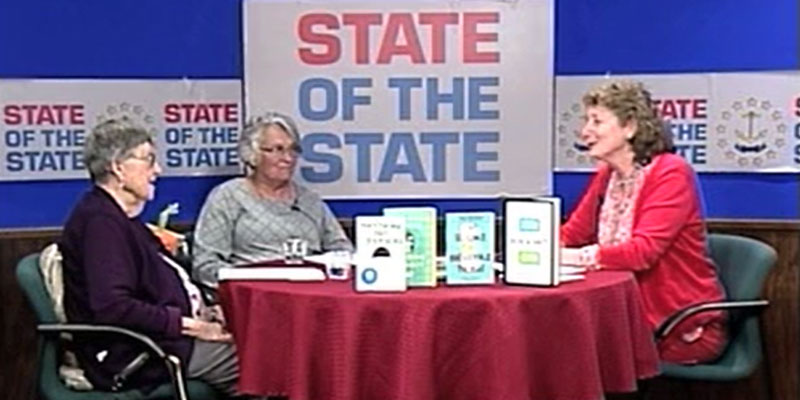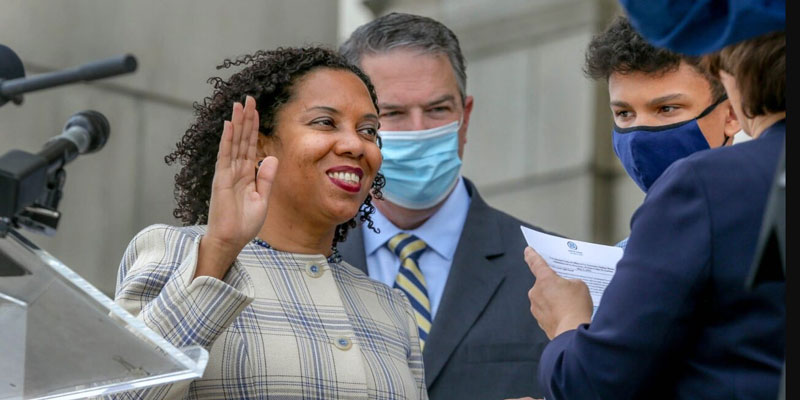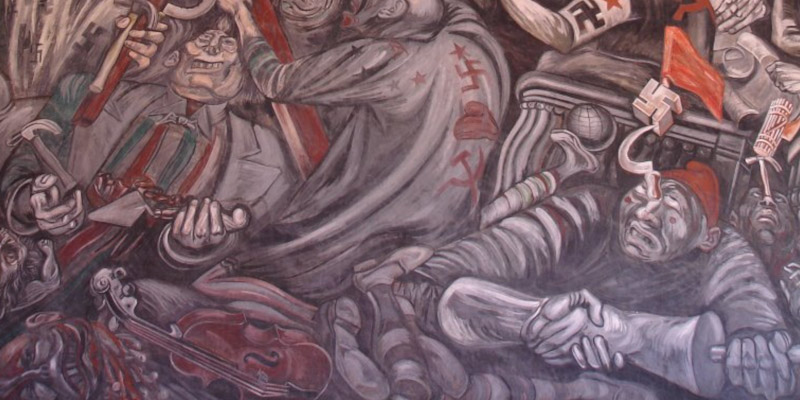Shift your focus just a little bit from the standard narrative, and you can only shake your head at the conspicuous omission in Amy Russo’s Providence Journal article reporting that “racial disparities in homeownership are more severe than the national average” in Rhode Island:
The report, released Thursday and authored by Brown School of Public Health academics whose work was funded by United Way of Rhode Island, states that overall, 62% percent of the state’s residents own a home, yet only 34% of the state’s Black residents are homeowners. By contrast, across the United States, 64% of the population owns homes, while 42% of Black people are homeowners. The data dates back to 2019.
Rhode Island is a state run by and for insiders and special interests. By nature, such people protect their own advantages, and by logic, their practice will disproportionately affect groups that are not numbered proportionally among them.
The idea that the dividing line is fundamentally racial is laughable. Northeastern insiders would love, love, love to boast that the group of people with whom they associate have different skin colors and fashionable lifestyles. They just insist that those people think pretty much the same thoughts they do, especially about the importance of maintaining the insider system.
The problem for minorities (for anybody who starts off outside the clique) is that the insider and special interest priorities mean the State of Rhode Island is run very poorly, with limited economic opportunity and a mountain of rules and restrictions for what people can do for housing. To observe that the Ocean State’s “racial gap in… homeownership [is] wider than the national average” is simply to observe that this is not a good place to attempt to build an independent life.
Nobody has incentive to state this plainly, and plenty of people have incentive to amplify group allegiances and racist thinking, so advocates’ solution isn’t to make Rhode Island a good place to improve one’s lot in life, but rather to encourage minorities to act as a special interest. Helpfully for them, this solution will only create opportunity for insiders among the minority groups.
Along with that minor advance for a handful of people, we’ll get huge amounts of racial animosity, making non-insiders less able to work together and thereby cementing the control of the insiders. Little wonder they insist that we focus on race!
Featured image by Justin Katz.
[Open full post]On WNRI 1380 AM/95.1 FM, John DePetro and Justin Katz discuss:
- Sabino Matos’s problem with the First Amendment
- Dan Yorke’s short sight on naked fat tests
- The General Assembly’s overreach on guns
- The budget’s overspending
- The RI GOP’s targeting of Ruggerio
- The soccer stadium’s grab for money
Featured image by Maksym Kaharlytskyi on Unsplash, colorized by Anchor Rising.
[Open full post]Guests: Louise Kiessling, Andrea Martin, and Susan Orban – Washington County Coalition for Children, www.washcokids.org
Host: Susan Orban Time: 30 minutes
Description: Dr. Kiesslink offers an overview of the mental health status of children. Unfortunately, there has been a trend of diminishing health and helpful treatment is not readily available nationwide. She cites some of the local efforts to find or create helpful treatment options; but supply of these falls short of the growing demand. Martin describes the use of literature (bibliotherapy) as a helpful approach to helping children of varying ages. She introduces a small sampling of books their efforts have found appropriate and helpful. Orban describes current programs
Naturally, the mainstream media is choosing to share video of Joe Biden falling on his bicycle in which you can’t see what actually happened. Barstool Sports has the good clip:
DOWN GOES BIDEN pic.twitter.com/yxHhRWOJyC
— Barstool Sports (@barstoolsports) June 18, 2022
It wasn’t even one of those stumbles that happens from time to time. The White House occupant just forgot how to get off the bicycle.
The people who installed this man have put the planet in cataclysmic danger.
[Open full post]No sooner do I resolve to take the summer off from social media than the Lieutenant Governor of the State of Rhode Island, Sabina Matos, decides it’s politically advantageous to involve me in her primary campaign to retain her seat. According to her press release:
The Ocean State Current and the Center for Freedom and Prosperity gave a platform for years to Justin Katz and others who have proven time and again to be vitriolically anti-choice, casually homophobic, and unconscionably sympathetic to white supremacy.
As evidence of my iniquity, Matos (through her PR hack, Evan England) links to a tweet reply of mine to Democrat Governor Dan McKee. When a small group of far-right cosplayers conducted a pathetic few-minute protest of a reading of Communist doctrine by a pathetic handful of committed Socialists in Providence, the Governor of the State of Rhode Island made an issue of it, asking Rhode Islanders to report any wrongthink if they had “information related to this incident.” I asked him his position on the First Amendment, which (for progressives who have lost track) is the one recognizing Americans’ right to free speech.
The tweet is actually more relevant than Matos and England might realize. The point of the press release is that Matos is refusing to participate in a forum with her primary opponent, Deborah Ruggerio, because it is hosted by people with whom she disagrees politically. A transparently convenient excuse, that. Take note that the lieutenant governor only represents people who share her politics.
Matos, through England, insists that my tweet “defend[ed] the indefensible rhetoric of white supremacists.” In point of fact, unlike the governor, I defended the right of American citizens to express their opinion. If he and she are not willing to do the same, they have no business at all holding public office.
Predictably, a politician at sea on large issues is adrift on small ones, too. Rhode Islanders should demand that top elected officials with influence on the expenditure of billions of their dollars should up their game. Matos must have no case at all for her reelection if she has to look to my Twitter feed — not to mention rejection of the First Amendment — for justification.
Featured image downloaded from Sabina Matos’s campaign site.
[Open full post]This is probably a strange question to pose, but nonetheless, one wonders. As the state government moves toward spending big money on suicide barriers that will inevitably change the aesthetic character of the bridges on which they’re installed, what is the belief system underlying our local culture? Where do supporters for such things stand on, say, physician-assisted suicide?
I ask only because my sense is that our society is deeply confused exactly in the way that would spend money to stop people from killing themselves by jumping off bridges while also spending money for doctors to pull the fatal chemical trigger upon request.
[Open full post]The idea of “reasonable” and “common sense” gun control laws is becoming an obvious sham. Reasonable people acting according to common sense differentiate between policies in different states and balance facts such as how frequently a particular type of weapon has been used in crimes in the state where gun-control legislation is proposed and what the circumstances tend to surround actual shootings. A state that already has relatively strict gun laws in which no high-capacity magazines have contributed to mass shootings and where increases in gun violence appear to be associated with increasing gang violence is not a place where common sense dictates a need to ban such magazines, particularly when doing so further reinforces the common wisdom that Rhode Island is not a good place to invest your life’s effort:
“It’s devastating,” said Jeff Goyette, owner of Pocasset Arms LLC. “I don’t know what I’m going to do.” …
“I’ve got my life invested in this shop right now, and I haven’t even finished it,” he said. …
“In the past few years that I’ve been stocking up, trying to get them into my retail store, probably over $250,000 worth of firearms,” Goyette said. “Eighty percent of those probably hold more than 10 rounds.”
The state’s message to Goyette, and those whose investments have been limited only to guns they’ve already bought, is, “You do not matter in this state.” The people pushing these changes are not acting according to reason and common sense; they’re acting according to ideology and emotion, and the end goal (certainly of those who are manipulating the unreasonable) is not a balance of rights and safety, but control and the removal of all rights from people with whom they disagree.
Featured image by Jose Clement Orozco on WikiArt.
[Open full post]The political commentary crew on CNN pretty uniformly believes Democrats will experience a “trouncing” come November. Well, look. That’s what happens when you install a senile old man through questionable means, selling him (to the extent you bother to make the case at all) as a reasonable centrist even though the people who make decisions on his behalf are hardcore Marxists. The truth is that a “trouncing” is too soft. If we had a healthy civic society, the Democrat Party would be utterly wiped from the face of American politics… and quickly replaced by a new opposition to Republicans.
[Open full post]Stories like this, by Kavontae Smalls in the Atlanta Black Star, should be a more prominent part of local news, giving us all an opportunity to acknowledge and admire the achievements of those with whom we share a corner of the world. Woonsocket sophomore Mariam Kaba has been awarded a $25,000 scholarship and given $1 million to spend helping people in her community. Except… the award has been served up with divisive rhetoric and false talking points, contributing to a harm that is potentially much greater than whatever hardship $1 million can alleviate in the short term:
Kaba says she experienced the disparity in resources firsthand when she attended a predominantly white high school in Cumberland, Rhode Island, where the median household income exceeds $96,000 according to census data.
“Cumberland is predominantly a white city, and their city is so clean and furnished, their education is like a hundred steps ahead of us, so me coming back here is like, Woonsocket is a low-income city, we’re a predominantly minorities, look at our education, look at what we’re learning, we’re so behind,” Kaba said.
The story can’t simply be that different communities have different resources, and we should work to minimize the effects of disparity on the children of each. No. It has to be framed as white people versus non-white people. Implicit racism must be implied. Naturally, in finding the cause so easily, advocates allow themselves never to address deeper problems that affect education and income.
Even within the article, readers have reason to question the narrative. Scroll up from Kaba’s assertion about Woonsocket’s being “predominantly minorities” and you’ll find this:
Woonsocket mirrors the state’s population demographics with a Black population around 8% and more than 80% white.
The narrative relies on word games. Racism must be the cause of disparities, so “low income” must be synonymous with “predominantly minorities,” and so all the white people of Woonsocket simply have to evaporate. They cannot exist. (They certainly cannot be given any special advantages that might help them close “wealth, employment and education gaps,” because every poor white person who gains wealth makes it more difficult to achieve racial equity.)
To be fair, Smalls’s numbers may be out of date. The latest Census numbers put Woonsocket at 70% white. That is a smaller majority than Cumberland’s 88%, to be sure, but it’s still substantial. “Predominant,” one might say.
To be even more fair, Anchor Rising’s People’s Data Armory shows that the racial difference between Woonsocket and Cumberland is larger at the school level. Cumberland’s white students continue to account for a 74% majority, whereas Woonsocket’s are only the largest minority (in the statistical sense), with 42%. However, the charts show that this is a relatively recent change, while the wealth difference between the towns is not. The difference in percentage of students eligible for free or reduced lunch (FRL) has not tracked with racial makeup.
The story we are being told, even in feel-good stories about student achievement, is false and malicious.
Featured image from the U.S. Census.
[Open full post]To live in the shoreline suburbs of Rhode Island is periodically to encounter raw evidence that progressivism has gained its purchase here, at least in part, as a way for some of the most privileged people in human history to feel themselves even more superior while assuaging their own guilt by accusing those who are slightly (or even significantly) less privileged of holding the incorrect views, all in the name of “tolerance” and support for the disadvantaged.
[Open full post]






